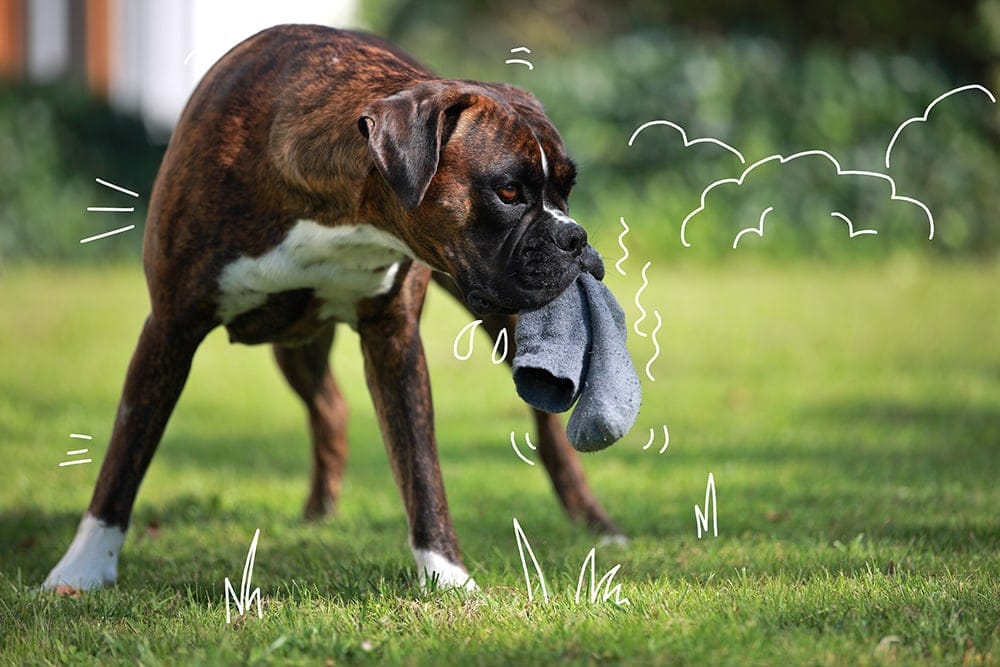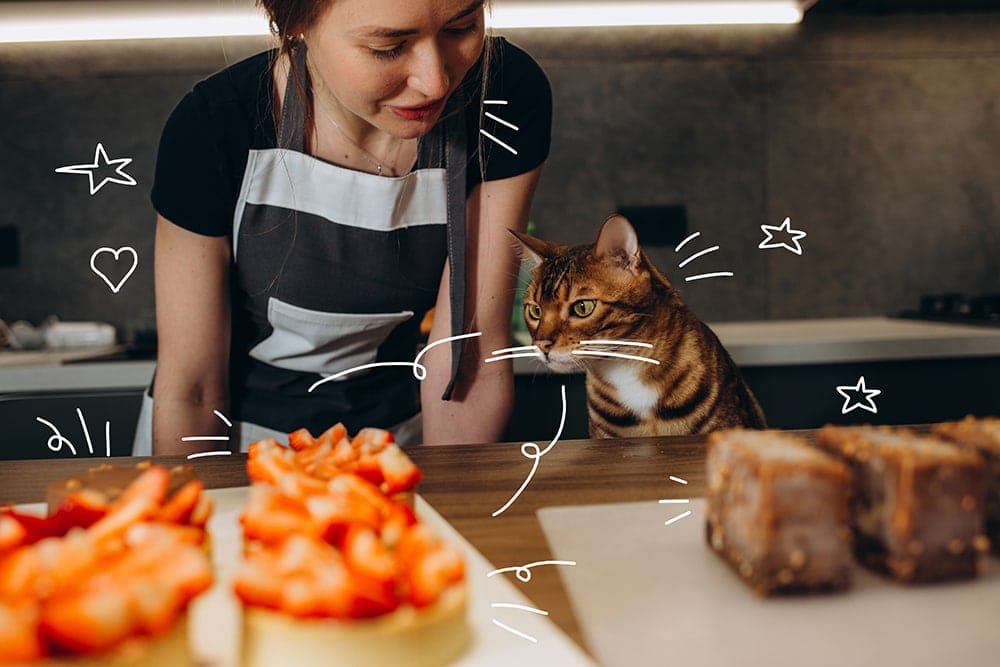Snack-cidents: when pets eat things they really shouldn’t
Any pet parent knows what our cats and dogs are like when it comes to seeking out additional treats. But sometimes, these ingested naughty nibbles can lead to thousands of pounds of emergency vet treatment and pet insurance claims.
Although the occasional payment of the Cheese Tax is fine for when our puppies come looking, we must remain vigilant in the foods and household items we leave within paws’ reach.
Here, we take a look at some of the recent pet insurance claims our policyholders have made when it comes to ingested items (source: MiPet Cover insurance claims, 2022).

Tummy troubles, foreign objects and poisoning all feature in the most common pet insurance claims from 2022, and all of these can be associated with naughty nibbles our pets have somehow consumed.
Chocolate
Widely enjoyed by us humans, especially around seasonal celebrations such as Easter and Valentine’s Day, chocolate is one of the frequent offenders.
The presence of theobromine is the main reason as to why pets cannot safely consume chocolate. Whereas humans can easily break down theobromine, this is much more difficult for pets.
Because of this, pets are much more likely to develop chocolate poisoning. In even small amounts, chocolate can lead to diarrhoea and sickness. It can be much more serious than this though and as a worst case scenario, it could even prove fatal.
Chocolate muffins, cakes, bars and even a Chocolate Orange all make an appearance on the list, with one particular claim topping almost £1,700, we can all agree that keeping these goodies well out of paws’ reach is the best option.
Raisins
Generally found in fruit cakes and mince pies, many people don’t realise just how toxic raisins are for our precious pets.
This is a common reason for pet parents claiming for the costs of emergency care required, with treatment costing from hundreds into thousands depending on the severity.
The toxicity of raisins can be especially damaging to the kidneys, with symptoms including loss of appetite, lethargy or weakness, abdominal pain, dehydration, increased thirst, increased or decreased urine production, vomiting and/or diarrhoea.

Socks
Dogs are often known to be cheeky sock thieves, but you’d never imagine that a number of them would end up with an emergency visit to the vets having actually eaten a sock or two!
Ingested foreign objects, like small items of clothing, made up 4% of claims in 2022, with the most notable sock-related incident at a whopping £2,700 in clinical fees.
Ribbon and string
Parties, gardening, shoe laces and gifts… snips of ribbon and string are everywhere, helping us to keep things tied together and secure. But these bits and bobs can sometimes find themselves consumed, leading to tummy troubles.
With recent pet insurance claims almost topping £2,000, it’s good to keep your peepers peeled for odds and ends laying around the house.
Xylitol
Xylitol is a sweet sugar substitute, derived from plants, including many fruits and vegetables. As it is found in so many everyday food products, it’s often the cause of snacking mishaps. Xylitol is extremely toxic to dogs, so much so that even a smidge may lead to hypoglycemia (low blood sugar), seizures, liver failure, or even fatality. Claims involving Xylitol ingestion have hit over £1,400, so it worthwhile exercising vigilance when you open the kitchen cupboards.
Examples of products containing Xylitol are:
- Sugar-free mints and gum
- Human toothpaste and mouthwash
- Baked goods
- Mushrooms
- Lettuces
- Strawberries
- Plums
- Oats
- Some peanut and nut butters
- Over-the-counter human medicines
- Sugar-free desserts
If you have any immediate concerns that your pet has ingested foods or items they should not have, seek emergency veterinary advice as soon as possible.
It’s always worthwhile having a pet insurance policy in place for unexpected incidents, such as the above snack-cidents. Get a free pet insurance quote in minutes now.
You might also be interested in…
Get a quote in minutes…

Existing customers
Call now on 0808 164 7999
to discuss your policy with us.
Monday - Friday: 08:00 - 20:00 Saturday: 09:00 - 14:00





 Back
Back
